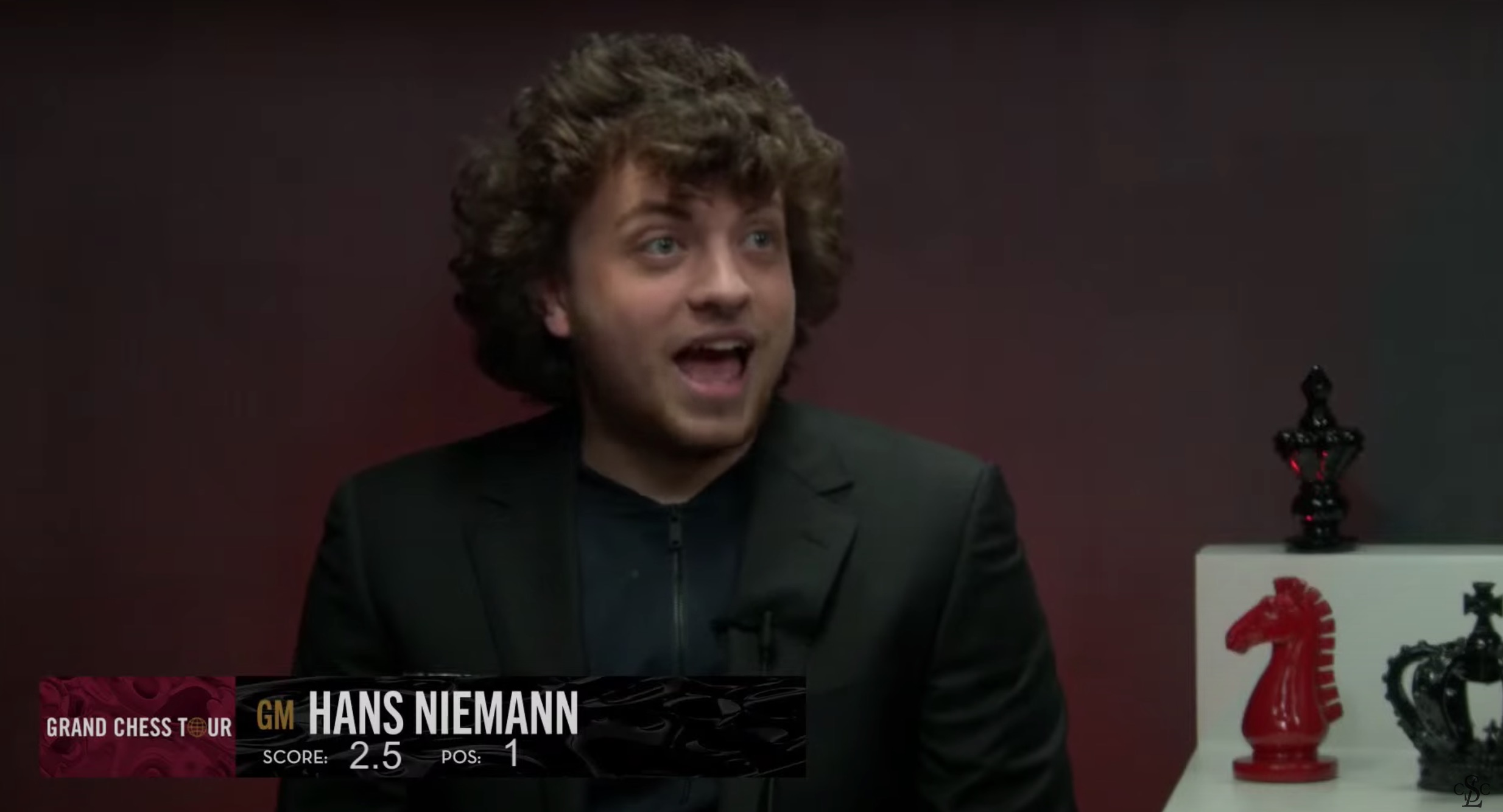After Magnus Carlsen accused American 19-year-old hotshot Hans Niemann of cheating one month ago, Niemann denied the accusation that he'd cheated over the board against the world No. 1 while proffering a partial confession: Yes, he had cheated, though only online two times, only when he was a relative child, and only once in a real tournament. However, Chess.com conducted an investigation into Niemann's online chess record—an investigation that the Wall Street Journal obtained a copy of on Tuesday—and reportedly concluded that he the scope of his cheating was dramatically larger than he admitted. While over-the-board cheating is not within Chess.com's purview, they also raised an eyebrow at Niemann's success through in-person tournaments and identified "many remarkable signals and unusual patterns in Hans’s path as a player."
Niemann claimed the only time he cheated in a tournament for money was when he did so in a Titled Tuesday when he was 12 years old. But the report says Niemann cheated in at least three other Titled Tuesdays, as well as PRO Chess League matches and games against several prominent grandmasters. They identified more than 100 of Niemann's games, one quarter of which took place on stream. Crucially, Niemann did most of this alleged cheating in 2020, a full year after he said he stopped cheating and a full five years after he said he last cheated in a tournament. Several games Niemann played against top players, like Ian Nepomniachtchi, for the express purpose of raising his online rating were singled out for "blatant cheating." So they banned him. Chess.com usually keeps its bans private, though several people clearly knew Niemann had been banned at some point, and in this case they said they felt "compelled to share the basis" of their decisions because of Niemann's false denial.
The report says Chess.com's chief chess officer Danny Rensch confronted Niemann with proof that he'd cheated in 2020, and that Niemann confessed, in an attempt to get his account back online. When Niemann made a stink about being barred from a $1 million tournament on Chess.com this summer, Rensch sent him a letter explaining that he wasn't going to allow Niemann to play for such a big pile of money when "there always remained serious concerns about how rampant your cheating was in prize events." Rensch also laid out a very ominous piece of evidence: "We are prepared to present strong statistical evidence that confirm each of those cases above, as well as clear ‘toggling’ vs ‘non-toggling’ evidence, where you perform much better while toggling to a different screen during your moves."
Chess.com's method for catching cheaters involves engine analysis, consulting the expertise of grandmaster "fair-play analysts," and monitoring whether players opened up other windows on their computer while playing. That last bit is the "toggling" mentioned by Rensch. A player doing significantly better when opening up another window on their computer—even if Chess.com's software can't distinguish what is in the window—is extremely suspicious. Doing other stuff on your computer should be a hindrance to a player's performance in a mentally intensive game like chess, especially in smaller time-control formats like rapid and blitz. If you only have 180 seconds to make an entire chess game's worth of moves, you should absolutely not perform better in games where you spend 20 seconds doing anything in another window. We should note here that Chess.com is not a neutral body, as they are in the process of buying Magnus Carlsen's app for $83 million.
"Outside his online play, Hans is the fastest rising top player in Classical chess in modern history," the report says. "Looking purely at rating, Hans should be classified as a member of this group of top young players. While we don’t doubt that Hans is a talented player, we note that his results are statistically extraordinary." Indeed: Their data showed Hans Niemann's ELO rating had risen more than any other player in history from ages 11-19.25. "Our view of the data is that Hans, however, has had an uncharacteristically erratic growth period mired by consistent plateaus," the report says. They also echoed what Carlsen said when he pointed out that Niemann behaved inconsistently during their game. Specifically, they noted that Niemann's explanations of his own (incredibly complex) moves in his games at the Sinquefield Cup didn't make sense to the top players they consulted. While they have no jurisdiction over any over-the-board cheating, FIDE is conducting an investigation of their own, so I suppose we'll know more at some point soon.






